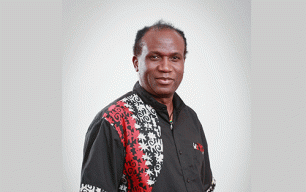Home Affairs plans a safe Nam

By Patience Makwele
In a decisive step toward strengthening public safety and national administration, the Ministry of Home Affairs, Immigration, Safety and Security (MHAISS) this week unveiled its 2026–2030 Strategic Plan which marked a bold and far-reaching blueprint aimed at safeguarding the dignity, rights, and security of all Namibians.
The launch was officiated by Minister Lucia Iipumbu, who described the strategy as more than just a policy document but rather “a compass” to steer the Ministry toward meaningful, measurable impact aligned with Namibia’s Sixth National Development Plan (NDP6) and Vision 2030.
“This is not just a formality. It is a demonstration of our Ministry’s deliberate commitment to contribute to the aspirations of our people and our nation,” Iipumbu said. “We are not planning to fail.” She reminded stakeholders that strategy without direction is a recipe for missteps. “We must avoid walking a long journey only to find out we were travelling the wrong road all along,” she cautioned.
The five-year strategy rests on six interconnected pillars: effective policing, corrections, civil registration, migration and border control, refugee and asylum management, and organisational excellence. Together, these pillars form what the Iipumbu called a “living framework for a safer Namibia”.
Among the ministry’s top priorities are intensifying the fight against crime, scaling up road safety measures, modernising border management, tackling statelessness, and ensuring humane custody and rehabilitation of offenders. The plan also placed a renewed focus on civil registration and digital transformation including ongoing improvements to e-birth notifications and population databases.
Drawing from lessons from the past five years, the strategy outlines both progress and persistent challenges. Notable achievements include increased forensic policing capacity, technology integration, and rehabilitation programmes in correctional facilities. However the road ahead remains complex due to Namibia’s porous borders, cybercrime threats, overcrowded prisons, and the plight of undocumented individuals who continue to demand urgent attention.
Iipumbu stressed that strategic goals will remain empty promises without collective buy-in. “No strategy can succeed in isolation,” she said, calling on Service Chiefs, Deputy Executive Directors, managers, and frontline officers to treat the new strategy as their shared compass. “We need collective discipline, collaboration and accountability to realise this vision.”
The plan is also grounded in global and continental development frameworks, the African Union Agenda 2063 and the UN Sustainable Development Goals reinforcing Namibia’s role as a stable and responsible member of the international community.
With an eye on implementation, the Iipimbu announced that all departmental budgets, annual plans, and individual performance targets will now be aligned to the strategy, with bi-annual progress reports to track milestones.
She also gave assurance that staff welfare would not be left behind, noting plans to improve housing, transportation, and tools for officers. “Ultimately, the greatest return on investment for a socially-driven Ministry like ours,” she said, “is to fulfil our sacred mandate to serve and protect.”
As the dust settled on the launch, Iipumbu concluded with a resolve and vision: “This is not the end. This is a new beginning. With unity, discipline, and innovation, we will make Namibia the safest country in the world.”
- 260 views










Comments